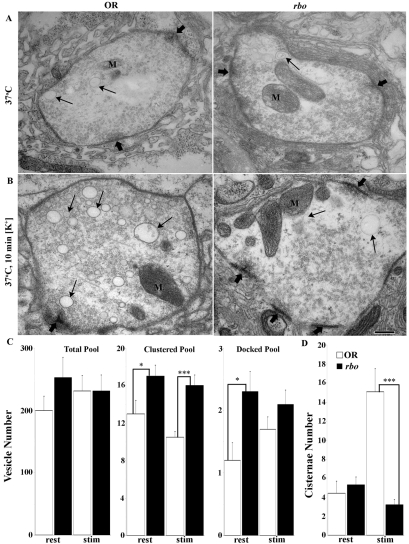Fig. 9.
RBO function is specific for bulk endocytosis in neuromuscular synapses. (A) Wild type (OR) and rbots after 10 minutes at 37°C display similar NMJ synaptic ultrastructures. Boutons contain plentiful SVs, especially clustered near active zones (thick arrows), many mitochondria (M) and a few larger (>60 nm) cisternae (thin arrows). (B) Terminals challenged for 10 minutes with depolarizing 60 mM [K+] saline show activity-dependent changes. In wild type (left), the primary ultrastructure change is a massive production of cisternae (thin arrows). In rbots (right), new cisternae conspicuously fail to form. Scale bar: 250 nm. (C) Quantification of SV number in conditions of rest and high-[K+] stimulation (stim). (D) The number of cisternae (>60 nm in diameter) is the same at rest, but very significantly increased by activity in wild type only.

